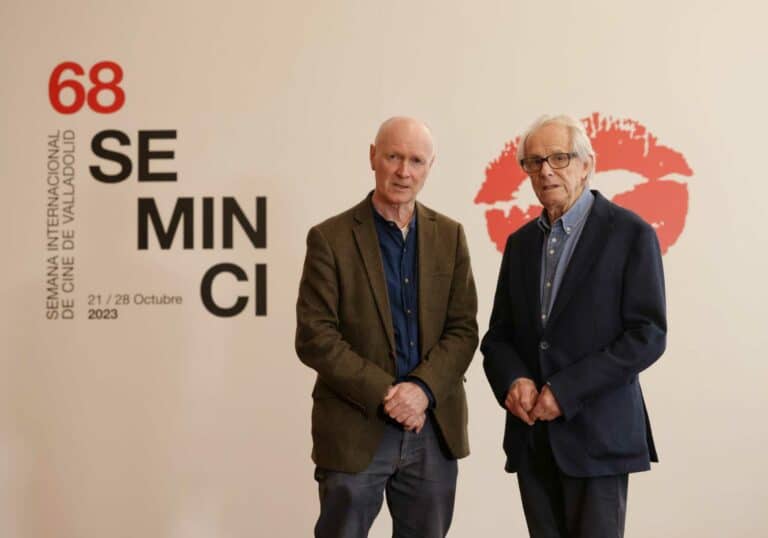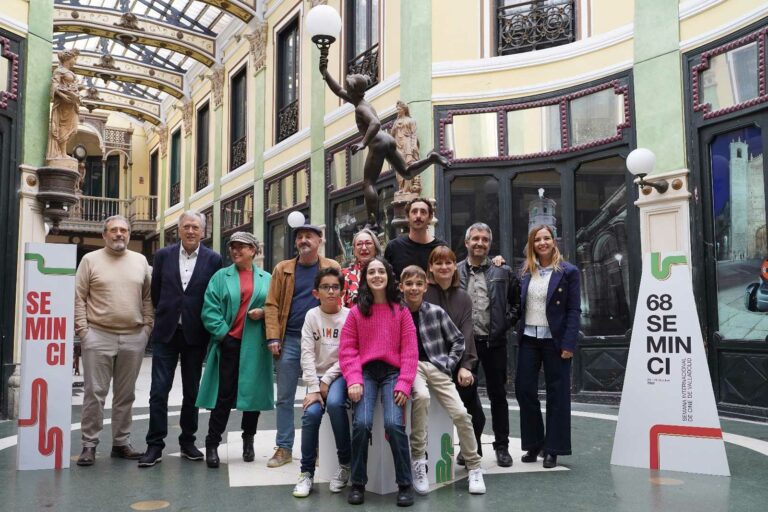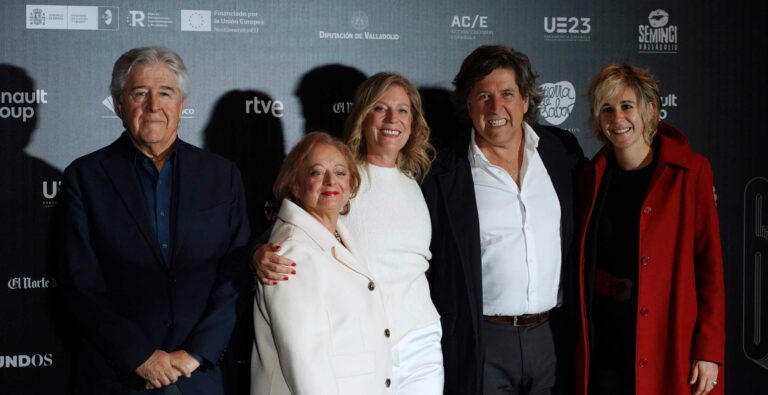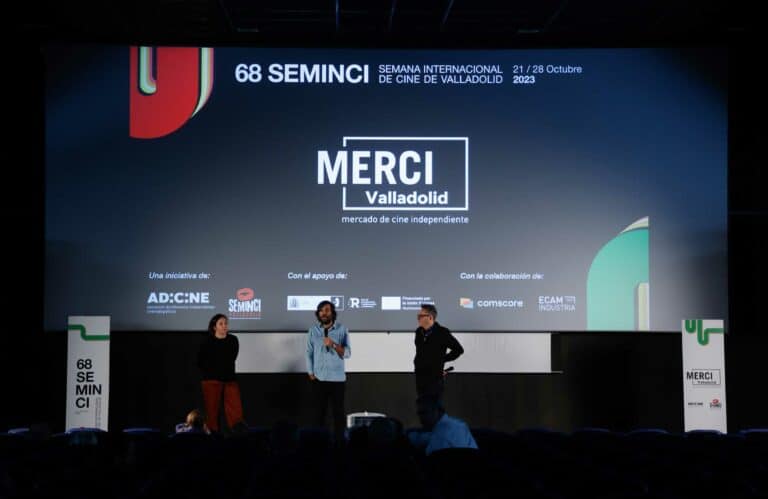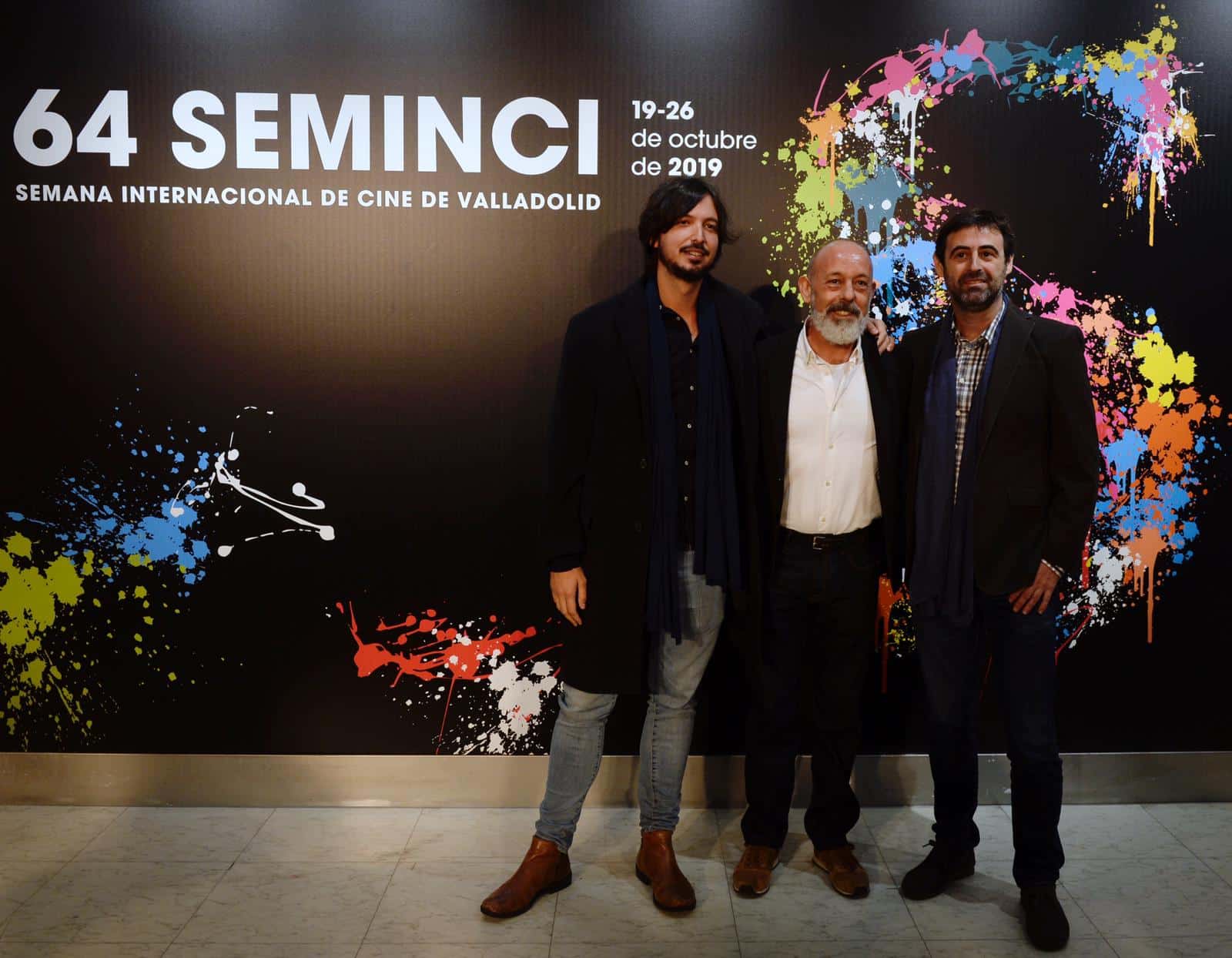
22/10/2019.- Polo Menárguez attended this Tuesday 22 October the presentation at Seminci of his third feature film, El plan, his first fiction proposal. Chema del Barco (who plays Ramón) and the producer, Nacho La Casa, have accompanied him. They have shared how the project was born and carried out, the starting point of which is the homonymous theatre play by Ignasi Vidal. The filmmaker was explicit regarding this: “After watching the representation, I felt that there was something very cinematographic in the narrative of the play, so I read it several times and I saw there was a film behind it.”
From that starting point, he went to Nacho La Casa, a producer with whom he had worked before. “Polo told me that the play had really moved him, so we ended up calling Ignasi Vidal. At first, he was reluctant, since there apparently had been other people interested in adapting it and, after the first conversations, the project had started taking paths on which the essence of the play was lost.”
In the case of Menárguez and Vidal’s project, it was approved and the teams started working on several aspects, such as maintaining the balance between comedy and drama, the first being a lot more present in the play, and the adaptation of the rhythm of a theatre play to that of a film. “That was the hardest,” Menárguez recognized, “but the actors helped me a lot at the rehearsals and the first reading. I also like shooting the sequences as a whole, since this helps a lot when editing and putting the film together.”
Not event the fact of using a flat as a set instead of a backdrop was an impediment for them. According to the filmmaker, he maintains his habit of working in houses from his short-film career, so moving cameras around sofas or knowing exactly where he wants to place them is not a problem at all. In this case, there was also an advantage: “It was hard to find the flat, but once we found it, I realised that it would be one more character, since it had the personality that a backdrop wouldn’t have had.”
The actors who played the characters in the film were, according to him “the casting was ideal from the beginning.” Raúl Arévalo (Andrade), Antonio de la Torre (Paco) and Chema del Barco (Ramón) play three friends who work as guards and have become long-term unemployed. They have a plan, and in order to carry it out, they get together at Paco’s flat, but the van in which there were going to go breaks down and leaves them stranded. While they find another vehicle, they chat, eat sunflower seeds, drink beer… and talk about things that are so personal that the relationship between them starts transforming.
For the director, “the film is a criticism of the construction of masculinity.” As he explained, “the three characters have strong masculinities, with a latent violence and it breaks out in one of them. Then, he starts talking about his studies on the limbic system, which for him is an excuse for what he has done.”
During the presentation there was an intense debate about the derivations of the film. It was mainly centered around the possibility of interpreting as an excuse for male violence the reflex ions of one of the characters about how the brain works when it blocks the feeling of empathy, as usually happens to serial killers, for example. Menárguez explains his point of view: “It’s about looking at these masculinities face to face and not justify anything. Moreover, it’s a criticism of those masculinities.”
Carne, the short film by Camila Kater
At the press conference Camila Kater and Chelo Loureiro, director and producer, respectively, of Carne, the short film screened along with El Plan were also present. Carne is based on how five women live their relationship with their body. A relationship that is often a cultural result.
The director explained the origin of the plot: “Since I was a child I was worried about my body and as a teenager I started wearing loose clothes. I did not feel comfortable, for example, in public transport, where there were sometimes cases of harassment. On the other hand, my mother and my aunt raised me and they are the two women who inspire me.”
For Chelo Loureiro, this new construction of masculinity to which Menárguez referred to needs to “be made by everyone, men and women, because all women have abuse stories.” Loureiro explained that the film “was made in Spain because it was stopped in Brazil when it was already being produced when Bolsonaro came to power.”




